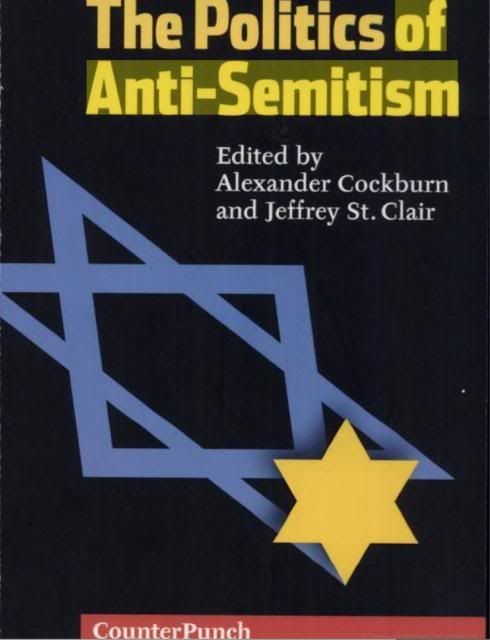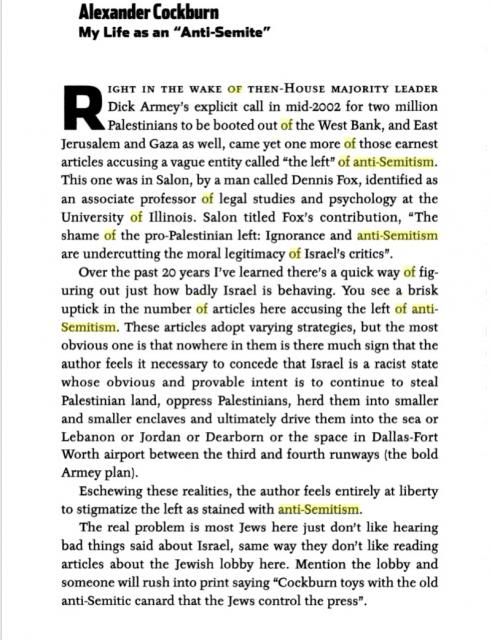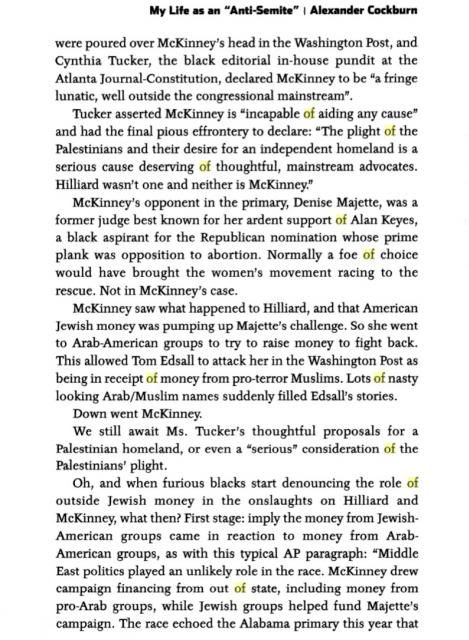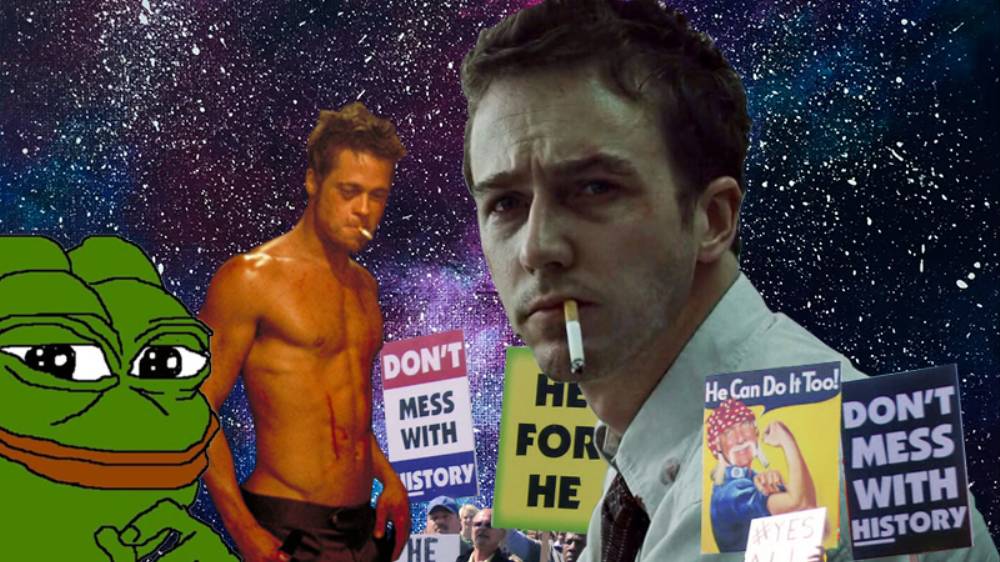One very important follower of Evola's ideas also believed in the necessity of political violence. In Ordeal by Labyrinth, a series of interviews with the writer Claude-Henri Rocquet, the historian of religion Mircea Eliade remarked that he became "politically aware" during his time in India, where he witnessed the same repression that angered people like the theosophist and Indian Home Rule advocate Annie Besant. Eliade remarked that "One day I heard an extremist talking and I had to admit he was right. I understood perfectly well that there had to be some violent protestors too."[1] India, however, isn't the only country in which Eliade's name is associated with political violence. In his homeland of Romania, there were links between the two that, as many of his detractors believe, Eliade did his best to obscure. Although the Eliade that most readers know is the tolerant, multicultural scholar of the world's religions, in a younger guise, Eliade was a fiercely nationalist writer, motivated by the same intolerant views that informed Schwaller de Lubicz and Eliade's Traditionalist mentor, Evola. In an article written in 1937, "Hungarians in Bucharest," the thirty-year old Eliade complains that over the recent Christmas holidays, three Hungarian plays were staged in his nation's capital. But this wasn't all. In the film Dracula's Daughter-an admirable sequel to the Bela Lugosi classic-some of the characters call for a Hungarian Transylvania. "I would have loved to hear the audience jeer for the entire duration of the movie," Eliade wrote. "I would have loved to see a group of students tear the film to pieces and trash the equipment."[2] Like many Romanians at the time, Eliade resented what he saw as Hungarian incursions into his nation, much as the British Nationalist Party is troubled by the "economic migration" of Eastern Europeans into Britain today, made possible by the European Union. Eliade made his strident remarks in print, in a national newspaper, at a time when in Germany many "patriots"-and not only students-were doing precisely the kind of thing he yearned to do, not solely to film projectors and movie screens but to people, mostly Jews, the universally unwanted guest.
That Eliade, like Schwaller de Lubicz, might want to forget such an injudicious past -- and might want others to also -- is understandable. Yet the kind of esoteric politics that Evola linked to Traditionalist thought remained a part of Eliade's sensibilities. In the same series of interviews, speaking of the political power of cultural activities like literature and art -- he calls them "political weapons" -- Eliade echoes Schwaller de Lubicz's and Guénon's calls for an elite. "It is no longer the politicians who stand at the concrete center of history," he told his interviewer, " but the great minds, the intellectual elites.'" Eliade had in mind a small number of "great minds," five or six, but, exaggerated or not, "those 'five' or 'six' are inordinately important."[3] Although Eliade would speak critically of Guénon, and would never publicly voice his debt to Evola, his Traditionalist roots show through the camouflage of half a century.
CLOSET TRADITIONALIST
In the late 1920s and early '30s, Eliade was a "distant follower" of Evola's and Reghini's UR group; exactly how he made contact with them is unclear, but Eliade became acquainted with Guénon's work through Reghini, as had Evola.[4] Eliade carried on an extensive correspondence with Evola-Evola even sent him copies of his books during Eliade's time in India-and although there is little direct trace of Evola's influence in Eliade's oeuvre, in his early years he was clearly a follower of his thought.[5] In 1930, Eliade published an essay in which he spoke of Evola as a great thinker; in the same essay he also praised the work of other racist philosophers, like Arthur de Gobineau, Huston Stuart Chamberlain, and the Nazi ideologue Alfred Rosenberg. Eliade was so taken with Evola's ideas-and so eager to avoid a public declaration of that interest-that in 1941, at the age of thirty-four, he started writing a novel in which Evola features as a character, an occultist named Tuliu, a close approximation of Evola's own first name, who espouses an esoteric faith which he calls "traditional metaphysics." Tuliu lives in a small scholar's dwelling where the bookcases are filled with "the complete works of René Guénon and J. Evola" as well as "complete collections of Ur, Krur [the name of another Evolian journal] and Études Traditionelles." Tuliu recommends Guénon and Evola to his friends, but a haphazard pile of books by Blavatsky, Steiner, Papus, and Annie Besant suggests the lack of importance these thinkers have for him. In the journal Eliade kept while writing the novel, he remarks that he must devote a special chapter to Tuliu's "philosophy," "lest the reader believe he is a case of a simple scatter-brained 'occultist.'" "Actually," he continues, "his theories are not completely foreign to mine," and Eliade remarks that he will use Tuliu to "say, for various reasons about which there is not room to dwell here, things I have never had the courage to confess publicly." "Only occasionally," he goes on, "have I admitted to a few friends my traditionalist' beliefs (to use René Guénon's term)."[6] Given remarks like these, it isn't difficult to see Eliade as a kind of "closet Traditionalist."
Why in his own journal Eliade didn't have room to "to dwell" on his reasons for never publicly "confessing" to his adherence to Traditionalist beliefs is unclear, unless we recognize that he didn't want a record-even a private one-of his own admission to a kind of intellectual cowardice. What Evola himself thought of this is unknown-the novel was never finished and the journals came to light only years later -- although he did once ask Eliade about his reticence to refer to him in any of his books. Eliade replied that he wrote for a general audience, not for "initiates."[7] As in the case of Jung, Eliade seems to have to taken steps to see that his interest in questionable occult matters didn't hamper his having a respectable career.
Eliade met his secret mentor in 1937. Following his visit to Vienna, where he lectured at the Nazi Kulturbund, Evola carried on to Hungary and Romania. Here he met Eliade, and his Romanian disciple introduced him to Corneliu Zelea Codreanu, leader at the time of a far-Right Christian "chivalrous" society, the Legion of the Archangel Michael, later known as the Iron Guard. It's his association with this spiritual elite, and his "fellow traveling," or worse, with Romanian fascism, that, as his detractors claim, Eliade tried to keep hidden.
Much of the responsibility for Eliade's "outing" is credited to the research of his Romanian student, collaborator, and later literary executor, Ioan Culianu. Like Eliade, Culianu was a brilliant historian of religion, magic, and the occult and was himself thought to display remarkable powers of prediction and fortune-telling. Culianu was also an outspoken public critic of both the Ceaucescu regime, and that of Ion IIiescu, which followed the downfall of Romanian communism. In 1991, Culianu's body was found in the bathroom of the Divinity School at the University of Chicago, where Eliade taught until his death in 1986. He had been shot once in the back of the head, execution- style. Culianu's murderer or murderers were never caught. Although Chicago police initially thought Culianu's death might be the work of some occult group unhappy with his research, the most plausible explanation is that it was the work of Romanian nationalists, unhappy with his criticisms of political developments in his homeland. It's also possible that a revived Iron Guard, unhappy with Culianu's research into Eliade's past, retaliated and used his murder as a warning for other Romanian expatriates.[8]
Some of Eliade's "secret," however, was already known to many at the university and to the academic community in general, although it wasn't until his last years that the full details of his other life became widely available. In 1969, Gershom Scholem made it known that Israel could not welcome Eliade, who, like Scholem, was one of the "star" lecturers at the Eranos conferences; the reason was Eliade's past. In 2000, the novelist Saul Bellow published a book, Ravelstein, a thinly disguised account of the last days of his friend the philosopher Allan Bloom, who died in 1992, from complications arising from AIDS. Bloom, a student of Leo Strauss, came to nationwide prominence in the late 1980s when his book The Closing of the American Mind, criticizing the decline of university education under the rule of leftist professors, became a surprise bestseller. Like Eliade and Bellow, Bloom taught at the University of Chicago, and in the novel Eliade appears as the "Romanian nationalist" Radu Grielescu, who wants to mitigate his anti-Semitic past by making friends and being seen with Bloom/Ravelstein, a Jew. Bellow, no stranger to esotericism -- his novel Humboldt's Gift is heavily influenced by Rudolf Steiner, and he once carried on a kind of "correspondence course" in anthroposophy with the philosopher Owen Barfield -- makes no bones about Grielescu's "secret." "The man was a Hitlerite," Bellow writes, who likened the presence of Jews in Romania to a case of social syphilis, a reference to an article written by Eliade in 1937 in which he spoke of Romania being "conquered by Jews and torn to pieces by foreigners."[9] Even Eliade's countrymen, like the playwright Eugene Ionescu, criticized Eliade for creating a "stupid, dreadful, reactionary Romania."[10]
THE ARCHANGEL MICHAEL
The Legion of the Archangel Michael was established in Romania in 1927 by Corneliu Zelea Codreanu. Codreanu had studied law at the University of Iasi, on the Russian/Romanian border, where he became involved in anti-Semitic and anti-communist activities. In 1923 a plan to murder several Jewish bankers and politicians was aborted when Codreanu was arrested, although he did later murder the police prefect of Iasi, a crime for which he was acquitted. This murder became the prototype for later political assassinations associated with the Legion, whose philosophy embraced a kind of death fanaticism that included martyrdom, communication with the dead, and a contempt for the body --all aspects, incidentally, of the shamanism Eliade would later become associated with. Before forming the Legion, Codreanu had been a follower of Alexandru C. Cuza, a political economist at the University of Bucharest who had founded a League of National Christian Defense. Cuza's violent anti-Semitism was seen as insufficient by Codreanu, who looked to the movement to bring about the "moral rejuvenation" of Romania, which would nonetheless include its "purification" of Jews, Hungarians, and other undesirables -- an early twentieth century version of ethnic cleansing. This would come about through the creation of a "new man," a version of the "regeneration" we have encountered throughout this book. In this sense the Legion was as much a spiritual and religious movement as it was a political one. Its ideology was based on a fundamentalist form of Orthodox Christianity, and it took its name from the icon of the Archangel Michael. If Mussolini's Fascism had the state as its center, and Hitler's Nazism had race, for Codreanu and his followers, Christ, paradoxically, was the heart of their vicious and intolerant creed.
Like much else in Eliade's "hidden" past, the exact nature of his relationship with the Legion is still unclear. Detractors argue that he was a "card-carrying" member and enthusiast, while supporters claim his dallying with the Legion was a regrettable youthful faux pas, and that he left before the violence associated with the later Iron Guard appeared.[11] Yet Eliade's newspaper articles praising Codreanu's elite clearly and publicly linked him to it. As with Evola's association with Fascism, the fact that he may never have literally joined the Legion seems overshadowed by his clear sympathies with it.
Most English-speaking readers are unaware that in his early career, Eliade was a kind of all round public intellectual and that his first essay into Romanian nationalist politics was a series of articles he wrote under the heading "Spiritual Itinerary." In these he focused on political ideals favored by the far Right. Like Evola, Eliade rejected liberalism, democracy, and modernization; he also praised Mussolini, an early sign of the admiration for "strong" leaders that he would also have for Spain's Franco and Portugal's Salazar, something he shared with Jung. Eliade approved of an ethnic nationalist state founded on the Orthodox Church; for all his interest in Oriental and "primitive" (read "primordial") religions, Eliade remained a lifelong devotee of Orthodox Christianity. The Legion of the Archangel Michael was a kind of vanguard for an Orthodox revolution which Eliade hoped for in Romania. Eliade's celebration of the Legion suggests that his Traditionalism followed Evola's emphasis on the Kshatriya, warrior, caste rather than Guénon's more Brahmin version.
According to some accounts, Eliade was introduced into the Legion in 1935 by his friend and fellow writer Emil Cioran.[12] By 1937, the year he introduced the Legion's leader to his mentor, Evola, Eliade was recognized as one of its leading propagandists, a position acquired through his enthusiastic newspaper articles. Its aims were impressive. The Legion, he believed, would spark a Christian revolution aimed at creating a new Romania, and its leader, Codreanu, would reconcile Romania with God. The Legion's victory was part of Romania's destiny, Eliade declared, and, as mentioned, it would "bring forth a new type of man" and the "triumph of the Christian spirit in Europe."[13] Like Evola and Guénon, Eliade believed in a geographical "supreme spiritual center," a "repository of primordial tradition," a kind of Romanian Agartha or Shambhala, which in his case was located in Dacia, the Roman province from which Romanians claim they have descended. Part of the Legion's mission was to cleanse this "primordial" "sacred space" of unwanted intruders. Linked to this was the cult of Zalmoxis, a Dacian deity at the center of a monotheistic "death and resurrection" religion like Christianity, with which it could easily be assimilated. Disturbingly, notwithstanding its esoteric and occult overtones, much of Eliade's rhetoric about the Legion of the Archangel Michael has surprising echoes with similar ideals advocated by the current American Christian Right.
Along with Cioran, who professed an admiration for Hitler (and who, unlike Eliade and Heidegger, later publicly repented of it), other figures close to Eliade were involved with the Legion, most significantly his philosophy professor, Nae Ionescu, with whom Eliade and Evola lunched after their meeting with Codreanu. Like Eliade and Cioran, Ionescu was part of the influential Criterion group of new Romanian intellectuals, and Ionescu's curious philosophy, which he called "Trairism"-a blend of existentialism, Romanian nationalism, and Christian mysticism-also advocated a regime aimed at "purifying" Romania of foreign elements. While many were inspired by Eliade's "legionary spirit," others were less enthused and saw his polemics as "mystical, dense and stifling," promoting "noxious practical consequences" which boiled down to "the elimination of Jews through acts of physical repression and persecution."[14]
One reader of Eliade's articles was Romania's King Carol II, who, alarmed at the Legion's growing power, took control of it in 1938, arresting Condreanu and other members, including Eliade. Codreanu and his twelve closest supporters were strangled in their cells -- an event that brought Evola to tears -- and Eliade spent some weeks in prison but was eventually released. King Carol II then handed control of the Legion over to Horia Sima, a Nazi sympathizer, who transformed it into the notorious Iron Guard, a "chivalrous" order whose atrocities rivaled those of the SS, and who the Allies would recognize as the Romanian Nazi Party.
FASCIST DIPLOMAT
After his arrest, Eliade refused to sign a declaration of dissociation with the Legion; he later argued that doing so would only put him on its "hit list" were they to return to power. But his association with fascism didn't end there. Through the help of his student Michel Vâslan, who had joined a separate Traditionalist group led by Vasile Lovinescu and would later become a follower of Guénon, Eliade was given a post as a cultural attaché to the United Kingdom; he was later transferred to Paris, and then to Portugal, which was then under the dictatorship of Antonio de Oliveira Salazar, for whom Eliade had high regard. For the next several years Eliade functioned as a cultural envoy for Romania, which in 1940 formed a pro-Nazi government under the new king, Michael I. Until the end of World War II and its coming under Soviet rule, Romania had a succession of fascist governments, including the short-lived National Legionary State, which had the vicious Iron Guard in near complete control. In 1941, after a failed and bloody Legionary Rebellion, when the Iron Guard made a bid for absolute control, Romania came under the fascist dictatorship of Ion Antonescu. That same year, Romania officially joined the Axis powers. At that point Eliade became the cultural attaché of one fascist dictatorship, in league with Nazi Germany and Fascist Italy, while residing in the capital of another, Salazar's. Part of his job was to distribute propaganda supporting Antonescu's totalitarian regime.
If this wasn't enough to give Eliade's apologists headaches, and his detractors an excuse for righteous indignation, in Paris after World War II Eliade started an anti-communist journal called The Morning Star (its Romanian title, Luceafârul, suggests the connection with Lucifer more clearly.) This was funded by Nicolae Malaxa, a Romanian industrialist and financier of the Iron Guard who had been a corporate partner of the high-ranking Nazi Hermann Goering; at one point Malaxa and Goering collaborated on a scheme to seize the assets of a Jewish businessman, and during the war Malaxa had put his considerable industrial empire behind the Nazi effort. (Curiously, although a known Nazi, Malaxa was later allowed into the United States, with the support of the government and the help of a young Richard Nixon.)[15] Eliade was also known to have high regard for Alain de Benoist, founder of the French New Right, who is a professed pagan, highly influenced by Julius Evola, and also for the Nazi jurist and political theorist Carl Schmitt, whose ideas, along with those of Leo Strauss and Eric Vogelin, inform some aspects of American conservatism today.
THE POLITICS OF MYTH
In The Politics of Myth, Robert Ellwood argues that Eliade later repented of his youthful fascist sympathies and embraced a more tolerant, "modern" vision of religion and society. Yet as he was in his thirties by the time he was a diplomat, how "youthful" Eliade sympathies were is debatable, and Eliade never made a public recantation of his controversial activities. Scholars have combed Eliade's later, more well-known work for its Traditionalist sources and for traces of his political philosophy, finding in his widely regarded academic works elements of his early "legionary spirit." That Evolian ideas might inform some of Eliade's later works doesn't necessarily detract from their value. Some critics, however, have taken the "hard" view that in the work that made him famous, Eliade peddled a Traditionalist ethos under the guise of "objective" scholarship.
Yet it isn't difficult to see that although much more open to modern ideas, Eliade's later vision is still one of the primacy of the past, of what we can call "ontological roots," as a look at the book that made his reputation in the English-speaking world, The Myth of the Eternal Return, makes clear. Eliade's "eternal return" isn't Nietzsche's notion of an eternal repetition of events but a vision of myth and ritual as a means of re-enacting the original, "primordial" acts that give life its sacred character. For Eliade, "archaic" or "traditional" man had no interest in history, in the ceaseless flow of becoming, only in being, which he entered into by returning to the mythical "first time." History for traditional man existed in what Eliade calls "profane time," a time devoid of meaning, escape from which was granted only by entering "mythic time," the once-and-once-only of the original, primary rites. Indeed, Eliade speaks of the "terror of history," "primordial man's" fear of being swallowed by the relentless flow of meaningless events, and we recall Guénon's lack of interest in the last two thousand years (Evola, too, showed a haughty disdain for "becoming"). Eliade is interested not in a past associated with history but in a past embraced by myth, and an ungenerous view might suggest that Eliade's later philosophy provides a justification for his own lack of interest in his own historical past. As his critic Adriana Berger writes, for Eliade "the past is not valid because it represents history but because it represents origins."[16] This fascination with origins, with beginnings, is linked to the search for Aryan -- or in Eliade's case, Dacian -- roots. It's at the bottom of most racist ideologies, including that of Eliade's mentor, Evola. In essence, it's a kind of snobbery. It argues that where you come from is more important than what kind of person you are or what you make of yourself. Among aristocrats, nobility, and "old money," the self-made man (or woman) is always a kind of upstart and not really "one of us." Sadly, for much of Western history, the Jew has been cast as the perennial upstart, but others have played this role as well.
Although as Ellwood argues, the vision of the past embraced by Eliade (and by Jung and many others) is really a romanticized modern vision of what this mythic time was like -- if it ever existed -- it still functions as a powerful attractant for those unhappy with modernity. The vision of a "homogenous, largely rural, and 'rooted' society'" with a "hierarchical superstructure," possessing a "religious or mystical tendency able to express its unity ritually and experientially,"[17] is in many ways attractive, given our own "atomistic" world of "rootless cosmopolitanism," and the idea that such a "sacred" society existed sometime in the immemorial past is seductive. But the idea of the past as preferable to the present isn't new. Indeed, the urge to return to some great good time seems as old as humanity itself: ever since Adam and Eve we've been trying to get back to the garden. And the notion that the future will be better than the past -- the essence of modernity -- is, quite rightly, only a relatively recent idea.
As the philosopher Leszek Kolakowski points out, the essence of conservatism is the belief that there are some things worth conserving[18], the recognition that "in some of its aspects, however secondary, the past was better than the present"[19] and that the relentless flow of the "terror of history" in an uncertain progress may not always be desirable. Many of us, myself included, dizzied by the unending stream of technological advance and social change, may agree with this. Yet while the attraction of origins is great, there is something to be said for what the neo-Marxist philosopher Ernst Bloch called the "not-yet," the possibilities and potentials that lie ahead, the promise of the new. To be sure, the "not-yet" view of history has problems of its own; witness the wreckage left by the many attempts to, in Eric Vogelin's phrase, "immanentize the eschaton," to violently wrench history in order to bring about the millennium. Strangely, forces in far-Right politics in the United States of recent years seem to combine the worst elements of the two opposing views: a return to some better time in the past and an imminent apocalypse that will bring about a new age.






